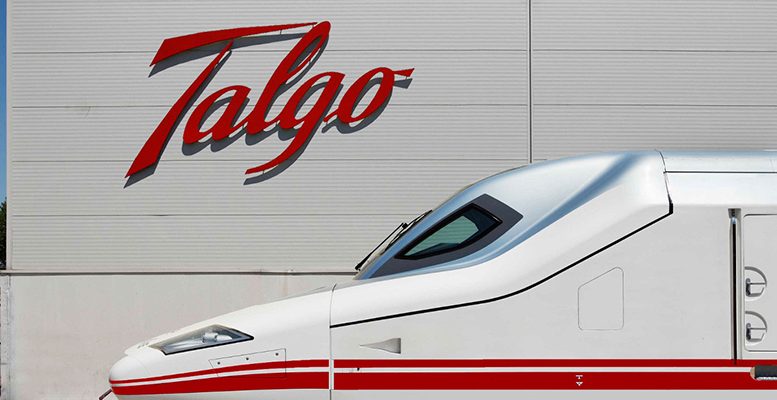Danish state railways company DSB confirmed it has chosen Talgo to supply eight standard coach formations as a result of an international competitive tendering process. The train is an iteration of the Talgo 230 conventional intercity platform, the same already chosen by the rail transport giant Deutsche Bahn only some months ago.
Under the contract, Talgo will supply eight full standard coach formations, each with a passenger capacity of over 440 seats, along with spare parts during 16 full years. Total amount of this first order is 1 billion DKK (around 134 million EUR). The contract is a framework agreement allowing DSB to procure both more single coaches and full formations, if need arises, with a total value of 500 million EUR.
Talgo trains enable a 30% reduction of energy consumption as compared with the industry standard attributable to the unique rolling assembly technology, exclusively developed by the Spanish-based company and allowing for the manufacture of much lighter coaches. This supports a further reduction of carbon emissions from rail transport, which is already the most sustainable form of transportation, in Denmark – a country that has committed to cut carbon emissions by 70% from the 1990 level before 2030, and to become truly carbon-neutral no later than 2050.
No borders
Key to this agreement has been Talgo’s impeccable track-record of on-time delivery and the company’s capability to provide DSB with a multisystem train, ready for cross-border services whenever and wherever necessary. The Talgo 230 train sets are tried and tested, and they are fully aligned with the demanding technical rules enforced in Denmark and Germany, while also complying with the European-wide standard (known as TSIs).
The train DSB has commissioned will be used in the international route connecting its capital city, Copenhagen, with one the busiest rail hubs in Germany, the port city of Hamburg.
The standard track-gauge Talgo 230 for DSB will reach a commercial top speed of 200km/h and will feature wide bodyshell coaches providing passengers with more interior room compared to other trains.
Talgo President Carlos Palacio said:
“Climate change is a challenge that requires decisive and realistic actions, and we are pleased to see that decision-makers from leading nations share our confidence that a swift transition to a decarbonized transport system based on efficient and lightweight railway transportation is one immediate answer to that challenge.”
“DSB’s choice of Talgo’s coaches acknowledges among other features the extreme lightweight features and superior energy efficiency of our trains, which are hallmarks that allow train operators like DSB to contribute decisively to the fight against climate change with tangible actions in the transport sector.”
Talgo 230
The Talgo 230 platform is based on the same technological foundation that has established the Spanish train producer’s intercity trains as an international reference. They are light vehicles boasting independently rotating, self-guided rolling assemblies, able to maximize capacity and which can mount natural tilting systems and/or automatic track-gauge changing systems. They are also highly scalable: Acquired as conventional trains, they can be easily and inexpensively upgraded into true very high-speed trains for commercial top speeds of 300km/h –as Talgo is currently doing for the Spanish state-run company Renfe.
The Talgo 230 trains now awarded by DSB are to follow the ones already awarded by Deutsche Bahn in early 2019 under a 100-train wide framework contract that included an immediate order for 23 trains, which will be allocated to landmark routes like the one linking Amsterdam in Netherlands to Berlin in Germany. Talgo also has conventional intercity trains operating under very different scenarios like Russia, United States, Canada or Kazakhstan.





